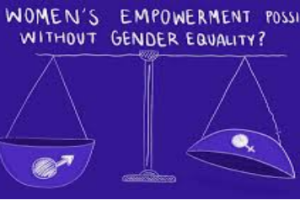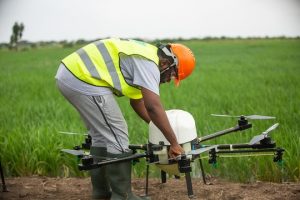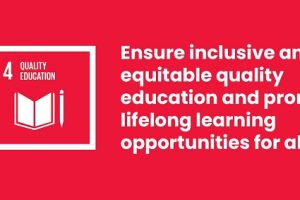
BY MENGISTEAB TESHOME
There is consent among nations that education is one of the fundamental human rights, and it is a key element to reducing poverty and improving socio-economic conditions. Yes, education is all about people being able to learn what they need; so as to improve their lives, according to their potential.
The Ethiopian Herald approached Ministry of Education Pastoralist and Special Needs Education Desk Head Meseret Bekele to learn about the progress made in ensuring accessible, inclusive education regardless of health status, religious background, and skill differences in order to build an inclusive society. According to her, the Ministry, along with local and international development partners, is keeping on striving to make education accessible to learners, including those with Special Educational Needs (SEN), in a manner meeting their full potential and needs.
To this end, the Ministry is revising the Special Needs Education Program strategy that was developed in 2006 in three rounds, and currently efforts are underway in revising the former strategy with important contents in a bid to fill the gaps witnessed in the implementation of inclusive education at the grassroots approach. The new strategy on track is helpful in addressing the gaps in teachers’ training programs and the limitations in availing educational resources and additional training.
She also noted that inclusive education is being implemented in various schools in Ethiopia at partial or complete levels and has proven to be highly beneficial to not only the challenged children but also to the regular or normal children because it creates the opportunity to learn, adapt themselves and live in harmony with them accepting differences. She further noted that disparities could arise when learners with physical and mental disabilities come across with inadequate educational facilities. At national level, efforts are underway to give every citizen equal access to publicly funded social services and; support shall be given to accommodate the needs of persons with disabilities at each institution.
“Inclusive education performance is progressing on the right track; however, to show great progress, there must be coordination among pertinent stakeholders today than ever before. The Ministry calls on stakeholders to address gaps in the provision of access to all learners particularly for those with Special Educational Needs to build inclusive society.” Senior Expert on Inclusive Education with the Ministry, Alemayehu Woldekirkos for his part said that much has to be done on creating an informed community towards inclusive education and the special needs education, because there is misunderstanding towards inclusive education approaches among the communities.
Inclusive education is the best and the ultimate way to provide equal opportunities and environment for those children with special needs, so that they can live a happier, dignified and independent life. Students with mild and moderate disabilities could go through the inclusive education system; but students with severe disabilities should be supported to attend their education at special needs schools as well as classrooms. According to him, special classrooms are rooms that are attached to a regular school and organized with appropriate personnel, educational material resources and aids for learners with special educational needs, to teach and train them with appropriate skills.
Whereas Special Needs Education is the type of education which provides appropriate modifications in curricula, educational resources, medium of communication or the learning environment in order to cater for individual differences in learning. This may include everything from special schools, through special classes to inclusive education. He finally noted that a special school is a school that is organized with appropriate workforce, educational material resources and aids exclusively providing educational services to learners with disabilities only.
Moreover, he underlined students with Special Educational Needs are learners who, for a variety of reasons, encounter problems in learning sometimes during their educational career, and are in need of additional support for short or long periods. It is clear what it feels being a parent of a child with special needs; at times it brings anxiety following the inferior treatment to his or her offspring against peers. But, inclusive education is one bridge that can help provide a platform of equal opportunities and a learning environment similar to that of peers for children with disabilities.
“In my view, an environment or setting where children with disabilities and general children learn together can give way to the former leading independent, respectful and regular lives in general.” He further noted that the inclusion education approach benefits one and all. It is not only the children with disabilities that benefit from inclusion but even the able children do. It gives an opportunity to learn and accept as well as live in harmony with children with disabilities and also to appreciate them. In longer periods, they even become friends with children with special needs forming meaningful and life lasting relationships. The normal or general children even help their disabled or challenged peers which also hone their own skills. Even teachers get to teach to a diverse group of students to enhance their teaching skills as well.
“In my opinion, it is high time to make sure an inclusive education approach at each school facilities and equip them with skilled human power in a bid to garner the umpteen benefits of inclusive education for betterment of society. It seems that Ethiopia has fertile ground in translating inclusive education to the ground and benefitting all because the constitution of Ethiopia clearly stipulated the case. Furthermore the constitution has stated that all international agreements ratified by Ethiopia are an integral part of the law of the land.
THE ETHIOPIAN HERALD SATURDAY 11 MARCH 2023





